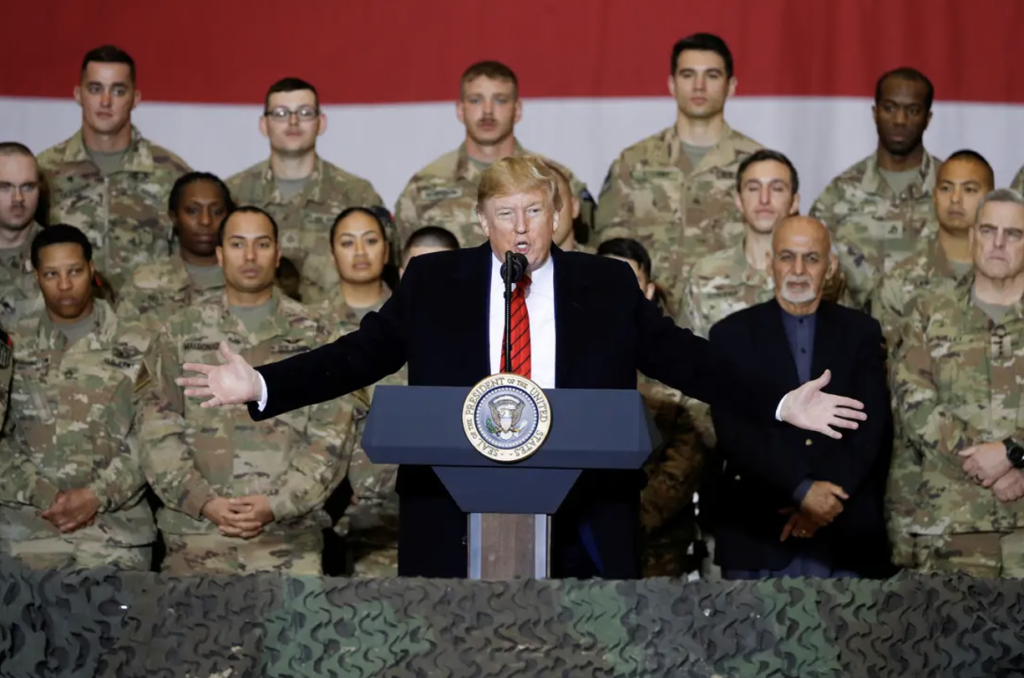
Throughout Donald Trump’s presidency there have been numerous incidents of salacious stories from inside the white house being reported by the press via anonymous sources. Despite the press having a longstanding history of utilizing anonymous sources, the practice has received more criticism during the Trump administration due to his disdain for what he deems to be the mainstream media. Trump refers to the media as corrupt and “fake news.” When stories are reported that are based on anonymous sources and include him, he uses it as more ammunition with which to attack the press.
On September 3, 2020, The Atlantic published an article written by John Goldberg, the editor and chief of the magazine, with the headline “Trump: Americans Who Died in War Are ‘Losers’ and ‘Suckers’,” (Goldberg). The article was not written with a hard news stance but was instead an editorial that included the author’s personal opinions. Throughout the article Goldberg includes several quotes from sources which he states “spoke on the condition of anonymity” (Goldberg). An example of this from the article can be seen in the following excerpt:
“When McCain died, in August 2018, Trump told his senior staff, according to three sources with direct knowledge of this event, “We’re not going to support that loser’s funeral,” and he became furious, according to witnesses, when he saw flags lowered to half-staff. “What the fuck are we doing that for? Guy was a fucking loser,” the president told aides” (Goldberg).
Goldberg and The Atlantic received criticism from both Trump and others for relying on anonymous sources for this article. In response to the article, Trump told reporters:
“To think that I would make statements negative to our military and our fallen heroes when nobody’s done what I’ve done with the budgets, with the military budgets, with getting pay raises for our military” (BBC).
Referring to The Atlantic, Trump referred to it as, “a disgraceful situation by a magazine that’s a terrible magazine” (BBC). Goldberg responded to CNN’s Chief Media Correspondent Brian Stelter saying “I would fully expect more reporting to come out about this and more confirmation and new pieces of information in the coming days and weeks” (Benveniste). Goldberg went on to say “We all have to use anonymous sources, especially in a climate where the president of the United States tries to actively intimidate” and that “These are not people who are anonymous to me,” (Benveniste).
Although using anonymous sources is a longstanding practice, it does create room for reasonable doubt against a story and calls into question the credibility of the author and the publisher. Even if there is no reason to doubt The Atlantic’s reporting, the lack of named sources gives Trump further evidence to which he can use to question the validity of the press as a whole.
From one point of view, there is nothing wrong with journalists utilizing anonymous sources. It allows journalists to talk to important sources who would otherwise never be willing to give the information they have if their identity was not withheld. It is typical practice for a journalist to corroborate information received from any source, whether anonymous or not, with multiple other sources in order to make sure it is accurate before reporting on it. Established press institutions have a level of credibility with their audience that they are not going to authenticate information from a made up source solely for the purpose of making someone look bad. It is also the responsibility of the press to report the information that they receive to the public. One of the more famous incidents of the press reporting on a high-stakes story based on information from an anonymous source was during the Watergate scandal. At the time the story was reported the source was only known as Deep Throat. His identity was not revealed until decades later (Shepard).
From another point of view, during the era of Trump where press institutions are being called into question by both Trump and his supporters, it is not wise to report on a story that is filled with scandal relying so heavily on anonymous sources. Despite how solide the reporting may or may not be, it creates an opportunity for Trump to question the honesty of the media and stir speculation around the idea of the media conspiring against him. Furthermore, from the viewpoint of those who are in support of Donald Trump and his presidency, it will be considerably harder to gain their recognition when an article that is not favorable of Trump relies on primarily anonymous sources.
Discussion Questions:
- Should journalists continue the practice of utilizing anonymous sources?
- According to rule utilitarianism, should journalists publish information they deem to be important to the public even if their sources are anonymous?
- Should journalists alter their practices of reporting during the age of Trump in order to compensate for his attacks on the media?
Further Information:
Baker, Peter, and Maggie Haberman. “Trump Faces Uproar Over Reported Remarks Disparaging Fallen Soldiers.” The New York Times, The New York Times, 4 Sept. 2020, www.nytimes.com/2020/09/04/us/politics/trump-veterans-losers.html.
BBC. “Trump Panned over Reports He Called US War Dead ‘Losers’.” BBC News, BBC, 5 Sept. 2020, www.bbc.com/news/world-us-canada-54034707.
Benveniste, Alexis. “The Atlantic’s Editor-in-Chief Says His Story about Trump Calling Vets ‘Losers’ Is Just the Beginning.” CNN, Cable News Network, 6 Sept. 2020, www.cnn.com/2020/09/06/media/jeffrey-goldberg-atlantic-trump-reliable-sources/index.html.
Goldberg, Jeffrey. “Trump: Americans Who Died in War Are ‘Losers’ and ‘Suckers’.” The Atlantic, Atlantic Media Company, 3 Sept. 2020, www.theatlantic.com/politics/archive/2020/09/trump-americans-who-died-at-war-are-losers-and-suckers/615997/.
Shepard, Alicia C. “Deep Throat’s Legacy to Journalism.” NPR, NPR, 19 Dec. 2008, www.npr.org/templates/story/story.php?storyId=98532461.